#lingblr
Text

Duke, -duce, Herzog & ziehen
Duke comes from the Latin word dux (leader). It's related to the verb dūcere (to lead; pull), whence English -duce, for example in to seduce (whose original Latin meaning was 'to lead astray').
The second part of German Herzog (duke) is cognate to dux. This part, -zog, is related to the German verb ziehen (to pull), cognate of dūcere.
Old English had cognates of both words. Its counterpart of Herzog was heretoga (army leader). In Middle English it became heretowe, which would've become modern *hartow. The Old English cognate of ziehen was tēon. This verb would've become *to tee if it had continued to exist. See the infographic for information about its past tense and past participle.
#historical linguistics#linguistics#language#etymology#english#latin#french#dutch#german#spanish#old english#old french#old dutch#old saxon#low saxon#old high german#old frisian#frisian#romanian#catalan#portuguese#greek#venetian#gothic#lingblr
48 notes
·
View notes
Text

I mean that about sums it up
29K notes
·
View notes
Text

I have a linguistics degree so I can also claim insanely wrong things. French is just badly pronounced Latvian.
#langblr#Lingblr#Linguistics#I know the headline and title is probably just supposed to be polarising click bait#But jesus christ is it annoying
4K notes
·
View notes
Text
I was trying to check when the great English vowel shift happened and got the strangest ad I've seen lol

I'm now obsessed with the idea of buying a phonological change. Like, popping down to the store and completely changing the way you speak.
3K notes
·
View notes
Text
Map of British English dialects
by Ryan Starkey (Starkey Comics)
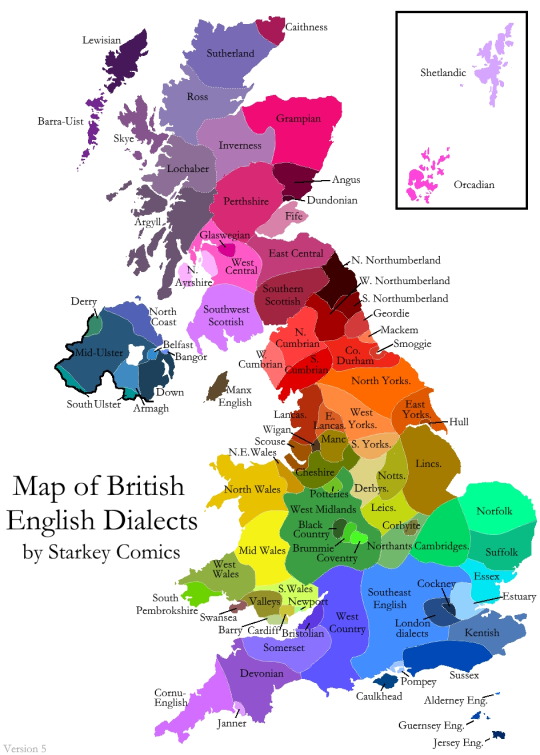
Author Ryan Starkey accompanies the map with a great article:
I’ve spent the last few years pooling together every study, survey, map, and database I can find, and then subjecting my image to several rounds of peer feedback. […] The end result is an image which is, to my knowledge, the most detailed map of British dialects ever made.
He also discusses “Why this map is wrong, and always will be”, and just how difficult it is to create a precise map of dialect regions.
Why is there so much dialect diversity in the U.K.? Because the longer a language is in a region, the more it tends to diversify. This is partly why, for example, there is a much larger variety of dialects spoken in the Eastern U.S. than the Western U.S.
Further Reading
The stories of English (David Crystal)
This is the perfect book to read if you want to know more about the history of dialect diversity in English, because the entire focus of the book is to show that English is not just one unified language (hence the plural “stories” in the title). It’s one of my favorite popular language books.
1K notes
·
View notes
Text
People say that "they" is often used as a third-person singular pronoun for a person of unknown gender. This is true. But it's also used as a third-person singular pronoun for a person of known gender but unknown identity. Like, when I was at a boys-only boarding school, I would still say things like "Someone left their notebook here." I know that the person whose notebook it is is a he, but the pronoun that goes with "someone" is "they". "Someone left his notebook here" sounds grammatically incorrect, or else it means that "someone" and "he" are different people.
665 notes
·
View notes
Text
Very curious about the results
5K notes
·
View notes
Text
Dictionaries be like: Instead of using the ipa we made this fake phonetic alphabet made up of esoteric runes. Please find a European with a wild beard to decipher them.
829 notes
·
View notes
Text

Source
13K notes
·
View notes
Text
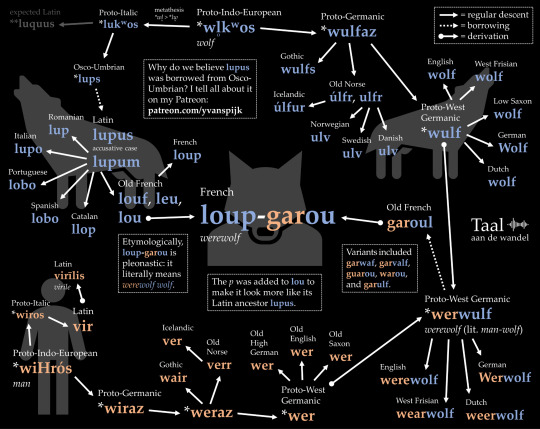
The French word for a werewolf is loup-garou. Etymologically, this compound is pleonastic: garou means 'werewolf' and loup means 'wolf'. It's also hybrid: loup stems from Latin lupus whereas garou was borrowed from West Germanic *werwulf. Click the image for more.
#historical linguistics#linguistics#language#etymology#english#latin#french#old french#proto-germanic#proto-indo-european#proto-italic#proto-west germanic#lingblr#werewolf#werewolves
989 notes
·
View notes
Text

Table with the partinioning of the TREE-WOOD-FOREST semantic domain.
Georgakopoulos, Thanasis & Stéphane Polis. 2018. The semantic map model: State of the art and future avenues for linguistic research. Language and Linguistics Compass 12(2). e12270. https://doi.org/10.1111/lnc3.12270.
#table#semantics#Thanasis Georgakopoulos#Stéphane Polis#2018#Language and Linguistics Compass#semantic maps#typology#lingblr#linguistics
294 notes
·
View notes
Text
Help save the Yiddish Translation Fellowship Program

I wanted to ask my followers and fellow language enthusiasts to donate to the Yiddish Book Center so that they can continue to train translators and make Yiddish literature accessible (or at least share this post if possible) 🐐
#langblr#Lingblr#Yiddish#Jumblr#Translation Studies#Translator#jewish literature#Boost#Yiddish Book Center#ייִדיש
4K notes
·
View notes
Text
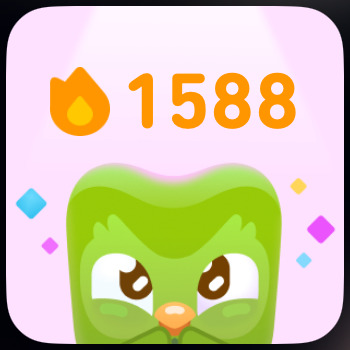

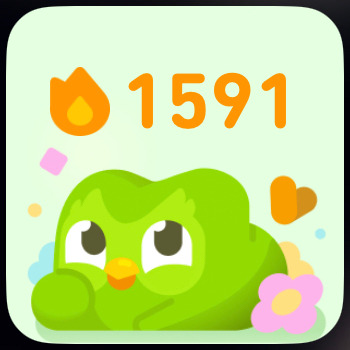

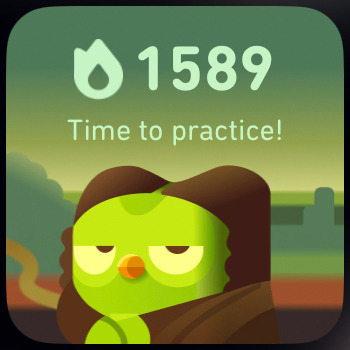







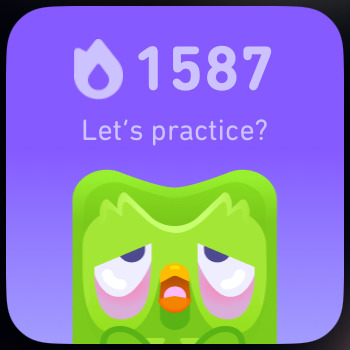

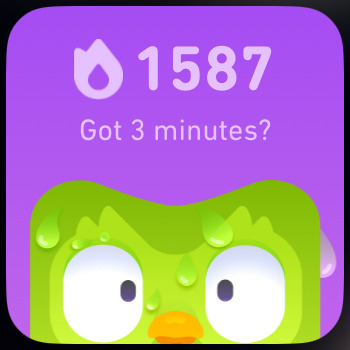
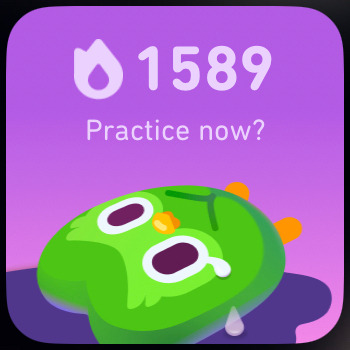

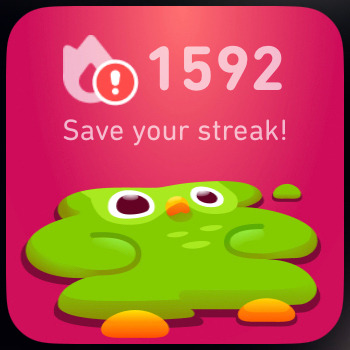

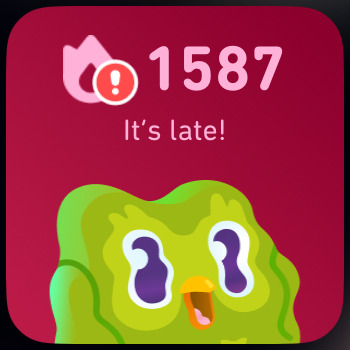

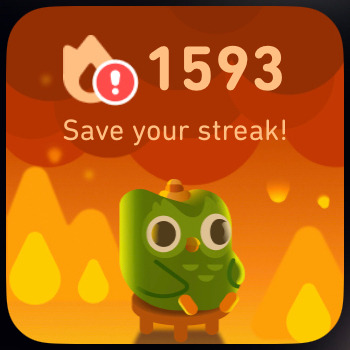
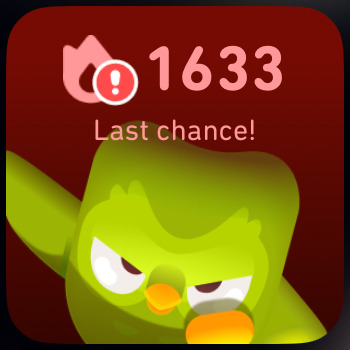

What is up with some of these new duo widget images?? Why does it have a butt? Why does it have a face butt??! What is even happening in that first sixth one? Haalppp
UPDATED I think I've managed to collect them all except the ones where you lose your streak because I'm simply Not Doing That.
#i spent the last 2 days letting it get later and later to screenshot these#duolingo#lingblr#langblr#o
558 notes
·
View notes
Text
The unequal proportion between the number of languages and how many speakers those languages have
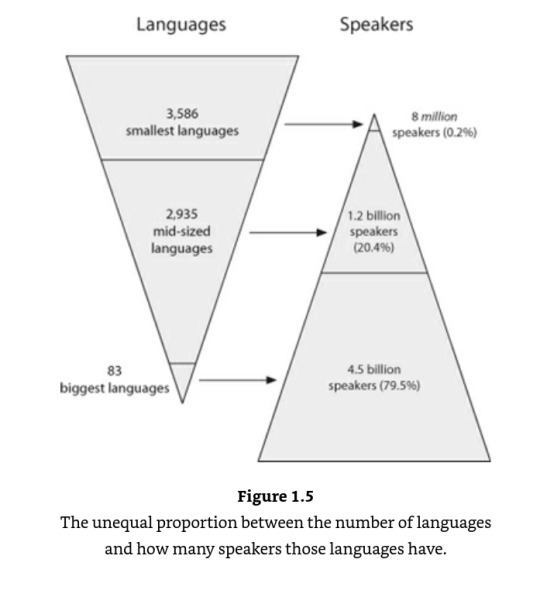
The median number of speakers for a human language is only about 5,000 people.
From the incredibly good book, When languages die: The extinction of the world’s languages and the erosion of human knowledge.
684 notes
·
View notes
